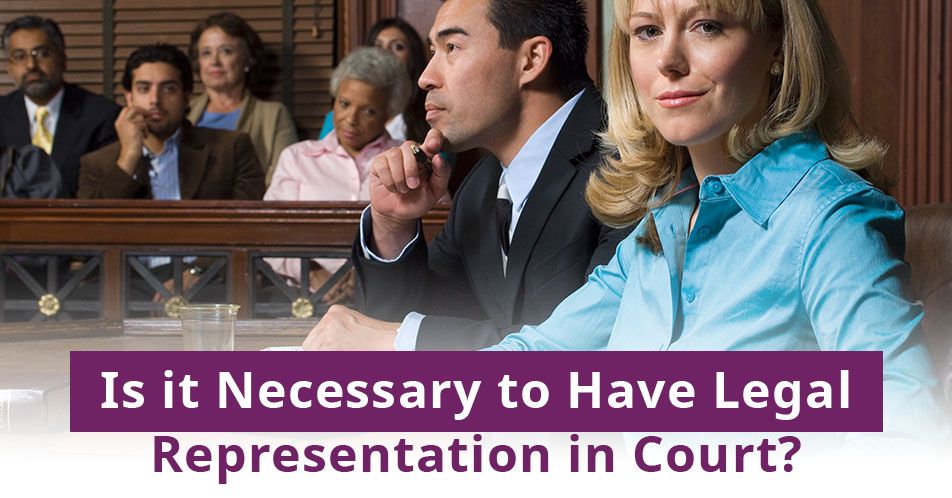
Is it Necessary to Have Legal Representation in Court?
Are you required to have legal representation when you go into court? You may be aware that legal representation can be expensive and you might be wondering whether it’s strictly necessary to have an attorney on your case. The answer is nuanced: though it is possible not to have legal representation in court, it’s recommended. Here’s what you need to know.
Getting Legal Representation for Court
Getting legal representation doesn’t necessarily mean that you need to pay for it. Often, you can get a public defender to help you with your case. You will just need to show that you can’t afford to hire an attorney, by submitting documents regarding your income.
Public defenders are highly qualified attorneys who are experts in their field, but they do have huge caseloads. Many of them can’t be expected to delve into the intricacies of your case. If you have a simple case, you may want to go with a public defender. If you have a more complex case or are looking at more significant prison time, you may want to hire your own attorney.
Some attorneys are willing to work with a deposit and a payment plan; you just need to let them know what you can pay and ask them what your options are.
The Importance of Legal Representation
As a citizen, it’s your right to represent yourself in court. The problem with representing yourself in court is an obvious one: you’re not an expert in the law. In order to represent yourself in court, you will need to do the following:
- Deal with the court system on your own, which can be confusing. You will need to know when your court dates are, where your trial is being held, and what documents to provide and when.
- Avoid potentially incriminating yourself. It’s often hard enough for individuals to avoid incriminating themselves while on the stand. During your statements and while speaking in court, you need to make sure that you don’t imply that you may have committed a crime – even if you really did not.
- Organize your own witnesses and evidence. You will need to essentially build a case that you could not have committed the crime or that there were mitigating circumstances that should be considered in sentencing. This requires a knowledge of what a court would consider to be mitigating, and what a court considers evidence.
Ultimately, the more help you can get with your court appearances, the better, and the most important thing is to show up to your court dates every time. At Free at Last Bail Bonds, we are fully committed to reuniting families. If you or a loved one needs our services, we are here for you 24 hours a day at 470-410-3409.